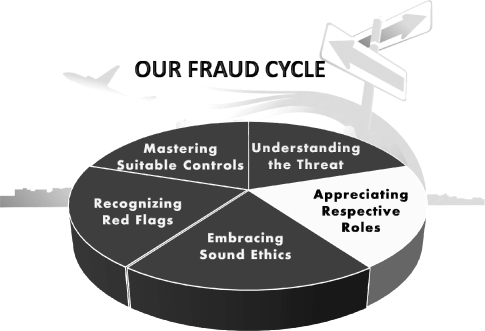7
Fraud Smart Training Needs
The previous chapter identified the skills that are needed for fraud control. This chapter sets out a simple process for ensuring that these skills are in place.
As you know, this book is based around the Fraud Smart cycle, which covers five key aspects of helping non-specialists get to grips with fraud at work. This is repeated in Figure 7.1.
Figure 7.1 The Fraud Smart cycle.

This chapter sits within the second part of the Fraud Smart cycle, Appreciating Respective Roles, and covers the way in which the right skills set can be secured.
WHAT CAN GO WRONG?
We know from the last chapter that the entire workforce should be compliant, honest, competent and astute. Having identified these skills, if we nevertheless fail to promote them properly, much could go wrong.
We can consider how problems can arise by looking at two brief illustrative case studies taken from the UK and the USA, at contrasting organizations.
CASE STUDY
In 2006 the London regulator, the Financial Services Authority (FSA), fined a trading company (with a client base of 126 000 and funds under management of £9.8 billion) £300 000 for systems and control failings in breach of its principal businesses. The company became aware of fraud being perpetrated by a small number of its staff. Fraudulent payments of £328 241 had been made, in some instances to bank accounts held outside the UK. The ...

